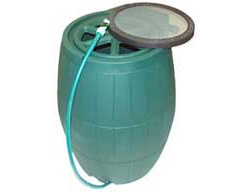Water Resources

The residents of Windsor have always taken pride in and respected our local watercourses, including the Detroit River and its tributaries Turkey Creek, Little River and Canard River. These are the sources of our drinking water, and they enhance our lives in many significant ways. As the stewards of our shared resources, however, we can all assist by taking key steps to reduce our water footprint.
Pollutants of the Detroit River originating from Windsor generally include:
- The City's sewer system and associated Combined Sewer Overflows (CSOs)
- Collection of litter in storm drains
- Improper disposal of oils, gasoline and other substances
What can you do to protect our water?
The sanitary sewers and waste water treatment plants (WWTP) are designed for the treatment of sanitary wastes only. Do not put fats, oils and greases (FOGs), plastics or household chemicals down your drains. Also, anything spilled on a road will end up in a catchbasin (storm sewer) and eventually be discharged to the Detroit River untreated.
Fats, Oils and Grease (FOGs): FOGs accumulate in the sewers, restricting flows, and may contribute to basement flooding. FOGs that make it to the WWTP clog pipes and screens, and reduce the effectiveness of the overall treatment process, increasing plant operation costs. FOGs should be allowed to solidify in a jar and then be disposed of with the garbage.
Plastics: Plastics and rags are unhealthy for sewers. These objects float and by-pass the chemical and physical collection processes at WWTP. The following should be disposed of as regular garbage: personal hygiene products, wrappers, rags and product labels.
Household Chemicals: The WWTPs are designed to treat human waste only. Other chemicals entering the WWTP may pass through the plant to the Detroit River. All household chemicals, including pesticides, should be taken to the Household Chemical Waste Depot.
Stormwater Infiltration: Disconnecting downspouts and installing a rain barrel are two ways you can help reduce the volume of sewage that could end up in the river untreated.
- Disconnecting downspouts allows rainwater to flow onto lawns freeing up capacity in the sewers during storms.
- Installing a rain barrel will help you conserve water, as rainwater collected during a storm can be used to water your garden on dry days.
What is the City of Windsor doing to protect our water?
Since the latter part of the 20th century, the City has made major strides in improving water quality by reducing the sewage discharge into the Detroit River. Most recently, the upgrade and expansion of the Lou Romano Water Reclamation Plant marked a major step forward towards the improvement of water quality in the Great Lakes. The City's ongoing projects for our water resources include the following:
- The Lou Romano Water Reclamation Plant has undergone a $110 million expansion that adds secondary treatment capacity using cutting-edge technology such as Biological Aerated Filter (BAF) process and Ultraviolet Disinfection.
- Engineering and Corporate Projects is working to replace the aging sewer system as the budget allows.
- The three-phased Riverfront Pollution Control Planning Study investigated direct municipal discharges to the Detroit River along the riverfront area in the City of Windsor and developed a pollution control strategy for the Windsor Riverfront District.
- The City of Windsor has completed an Environmental Study Report for the possible construction of a Retention Treatment Basin, which will provide treatment to the combined sewer overflows.
- The City of Windsor's Sewer Use By-law gives the City the right to prohibit, regulate and inspect the discharge of sewerage into the municipal sewerage system.
- The Environmental Master Plan outlines several actions required to achieve Goal A: "Improve Our Air and Water Quality." The City of Windsor will be proactive by partnering with community groups, industry and other levels of government to improve Windsor's air and water quality.
- The City of Windsor is an active participant in the Detroit River Canadian Cleanup.
FAQ for the City of Windsor Sewer System
- The majority of residents are serviced with either sanitary and storm sewers or by a combined sewer system.
- Storm Sewers carry stormwater runoff only. Storm Sewers eventually drain to the Detroit River, untreated. There are 732 kilometres of storm sewers within the City of Windsor
- Sanitary Sewers are designed to convey human domestic waste only to the City's Waste Water Treatment facilities. The City of Windsor maintains approximately 675 kilometres of sanitary sewers.
- Combined Sewers were constructed throughout the City until the 1950s. Combined Sewers carry both storm water and sanitary waste. The City of Windsor is working towards replacement of the 228 kilometres of combined sewers with a separated system (separate sanitary and storm) where practical. Unfortunately, this will not happen quickly.
- What are Combined Sewer Overflows?
- Combined Sewer Overflows (CSOs) occur when the capacity of either the sewers or the plant have been exceeded. When the sewers or the waste water treatment plant have reached capacity, the flows must be diverted to the river untreated in order to protect homes and infrastructure. CSOs occur during wet weather. Near-shore water quality in the Detroit River is degraded by overflows.
- What are Waste Water Treatment Plants?
- The City of Windsor owns and operates two Waste Water Treatment Plants (WWTP).
- Little River Pollution Control Plant has capacity to treat 73,000 m3/d, while the Lou Romano Water Reclamation Plant has capacity for 218,000 m3/d. The City of Windsor recently expanded the capacity and added secondary treatment processes to the Lou Romano Water Reclamation Plant. These waste water treatment plants are designed to treat domestic human waste only.
For general information, please contact 311. For detailed inquiries, contact:
Pollution Control
4155 Ojibway Parkway
Windsor, Ontario
Canada
N9C 4A5
Phone: (519) 253-7217
